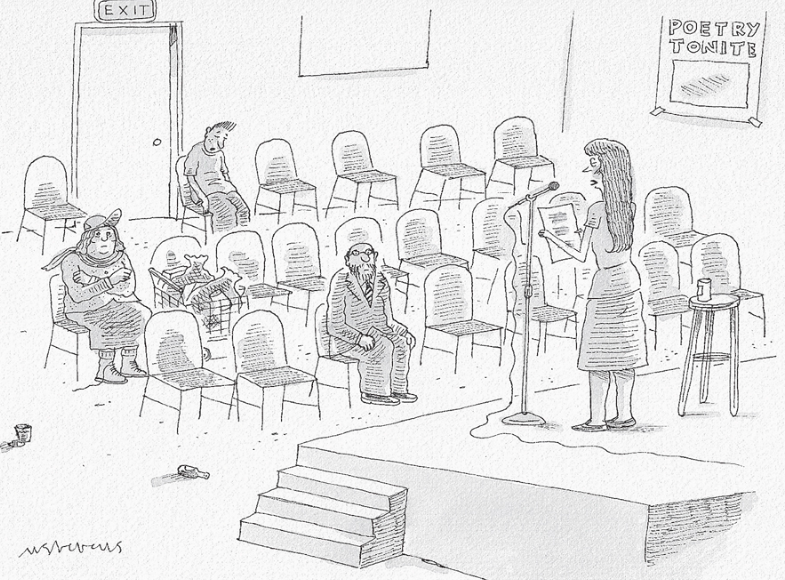The 6.5 Practices of Moderately Successful Poets: A Self-Help Memoir
Jeffrey Skinner
Sarabande Books, $15.95 (paper)
Jeffrey Skinner, author of five books of poems, has penned a hilarious yet moving “self-help memoir.” Skinner, more than a “moderately successful” poet, has been published in Poetry, The New Yorker, The Atlantic, and other prestigious journals. In this facetious yet spot-on directive, he points out the pitfalls of pursuing accolades in lieu of art. Once upon a time, Skinner worked as a private eye, and he intersperses the self-help chapters with pithy asides about his life hunting down bad guys. The best parts of the book aren’t new—all poets know that discipline, revision, and persistence are keys to creating a successful writing life. The aspects of this book that make it a stand-out are the charm and the honesty with which Skinner, sometimes in the same breath, both eviscerates and elevates poetry as a way of life. “Poets who write poetry, and then keep writing it, are very brave.” The truth, according to Skinner, is that the “gatekeepers of the arts are all Simon Cowells. . . . you have to be really good just to be invited in from the cold.” Skinner hopes to help poets take the long view, cultivate selfishness, and endure, even when the larger world ignores their efforts. This is a book about excising the detritus and getting down to the work, which, we all know, is the only thing that counts.








